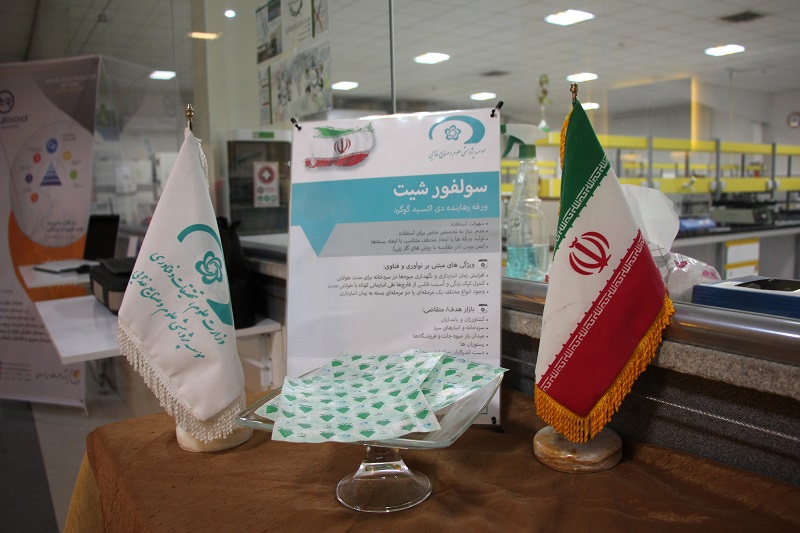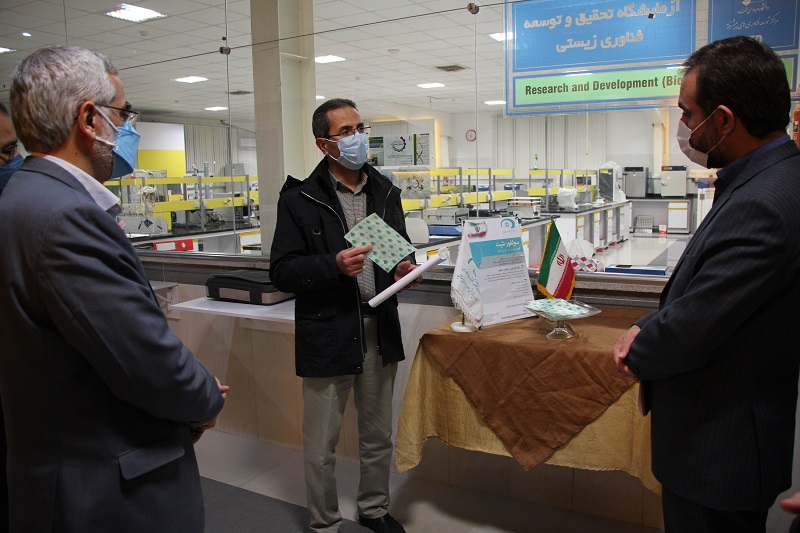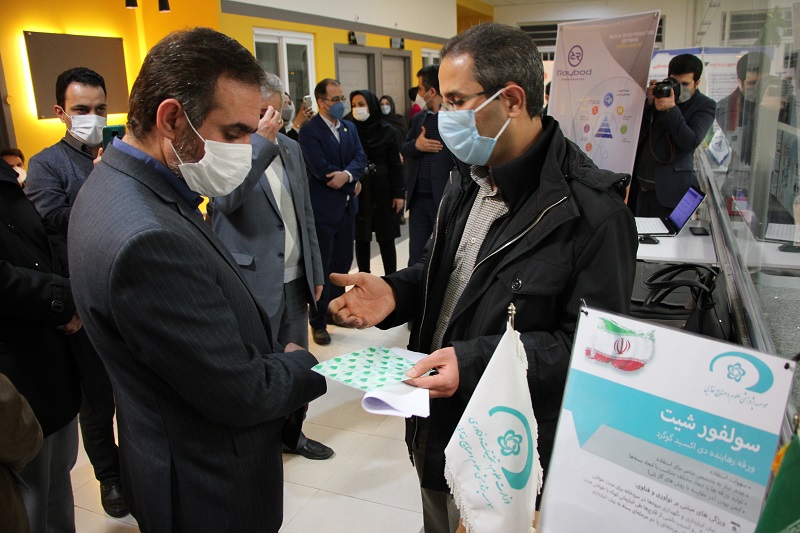RIFST’s President announced that with the intention to increase the shelf life of fruits and to develop the export of horticultural products, SO2-releasing sheets were unveiled. This innovation was based on a research project carried out at the Department of Food Chemistry of the Research Institute of Food Science and Technology.
It is pointed out that most fruits, most fruits are highly prone to postharvest spoilage , which explains why storing them requires suitable approaches are needed to increase shelf-life during storage to make them last for longer time : the production of sheetsSO2-releasing is necessary to control fungi and increase the shelf life of fruits.
Dr. Rajabzadeh referring to the international statistics, mentioned that “24%of the fruits and 42% of the vegetables produced in “developing countries” are wasted after having been produced and before being consumed. Also, he mentioned that the traditional food preservation methods including heating processes, freezing, radiation, storage in the modified atmosphere and using antimicrobial additives or salts cannot be applied on all produce”.
It was also mentioned that "In recent years, the production of controlled release packages has been widely noticed to increase the shelf life of food products. This approach transfers an active agent from polymer carrier to the food surface.
RIFST’s President added “the supply of consumer demand for a variety of vegetables and fruits through long-term storage said: the production of SO2-releasing sheets is a necessary step to control Synthetic fungicides consumption in the production and consumption chain, which, in turn, increases the shelf life of fruits (apples, berries, raspberries, grapes, persimmons, kiwis, pears and pomegranates) resulting in reducing agricultural waste, creating added value as well as improving communal health”.
It was also reported that “acquiring technical knowledge to reduce waste of agricultural produce can be considered a unique and indigenous technology, which was implemented as a collaboration between RIFST and Agricultural and Natural Resources Research and Education Center (AREEO), leading to localizing the technology as well as economic and industrial expansion and development”.



